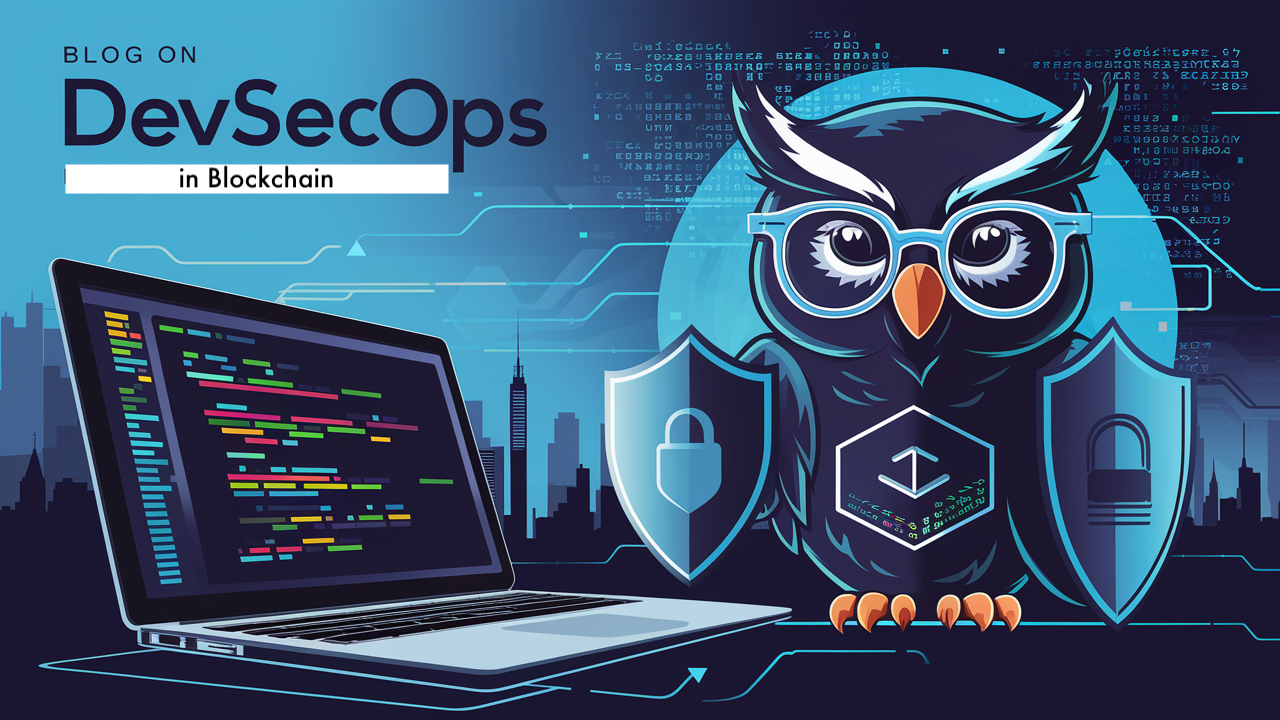As the world of technology evolves, the convergence of DevSecOps and blockchain has emerged as a powerful combination, driving security, efficiency, and innovation in software development and deployment. This blog explores the role of DevSecOps in blockchain, highlighting its benefits, challenges, and best practices.
Understanding DevSecOps
DevSecOps is an evolution of DevOps, a cultural and technical movement focused on integrating software development (Dev) and IT operations (Ops). DevSecOps expands this integration to include security (Sec) as a fundamental component throughout the software development lifecycle. The core principles of DevSecOps include:
- Automation: Automating repetitive tasks to increase efficiency and reduce human error.
- Continuous Integration/Continuous Deployment (CI/CD): Ensuring code changes are continuously integrated and deployed.
- Collaboration: Promoting seamless communication and collaboration between development, operations, and security teams.
- Security as Code: Embedding security practices and checks directly into the development process.
Blockchain Basics
Blockchain is a decentralized, distributed ledger technology that ensures transparency, security, and immutability of data. It has revolutionized industries such as finance, supply chain, and healthcare by providing a secure and transparent way to record transactions and manage data.
Key features of blockchain include:
- Decentralization: No single point of control, reducing the risk of centralized failures or attacks.
- Immutability: Once data is recorded, it cannot be altered, ensuring integrity.
- Transparency: All participants can view the transactions, promoting trust and accountability.
- Security: Cryptographic algorithms secure data and transactions, making them tamper-proof.
The Intersection of DevSecOps and Blockchain
Integrating DevSecOps practices into blockchain development can enhance the security, reliability, and efficiency of blockchain applications. Here’s how DevSecOps plays a crucial role in blockchain:
- Enhanced Security: Security is paramount in blockchain due to the irreversible nature of transactions. DevSecOps embeds security checks throughout the development lifecycle, ensuring that vulnerabilities are identified and addressed early. Automated security testing, code analysis, and vulnerability scanning help in maintaining a robust security posture.
- Continuous Improvement: Blockchain applications require continuous updates and improvements. DevSecOps facilitates CI/CD pipelines, allowing for rapid deployment of updates and features without compromising security. This ensures that blockchain applications remain resilient against emerging threats.
- Automated Compliance: Blockchain applications often need to comply with regulatory standards. DevSecOps automates compliance checks, ensuring that code adheres to industry regulations and standards. This reduces the risk of non-compliance and associated penalties.
- Scalability and Performance: DevSecOps practices optimize the performance and scalability of blockchain applications. Automated performance testing and monitoring help in identifying bottlenecks and scaling issues, ensuring that the application can handle increased loads and transactions efficiently.
- Collaboration and Transparency: DevSecOps promotes a culture of collaboration between development, operations, and security teams. In blockchain projects, this ensures that all stakeholders are aligned and informed, leading to better decision-making and faster resolution of issues.
Challenges and Solutions
While the integration of DevSecOps in blockchain offers numerous benefits, it also presents some challenges:
- Complexity: Both DevSecOps and blockchain are complex fields requiring specialized knowledge. To address this, organizations should invest in training and development, ensuring that teams have the necessary skills to implement and manage DevSecOps in blockchain projects.
- Tool Integration: Integrating DevSecOps tools with blockchain platforms can be challenging. Choosing the right tools that are compatible with blockchain technology and can be seamlessly integrated into existing workflows is crucial. Open-source tools and platforms often provide better integration capabilities.
- Security Testing: Traditional security testing methods may not be sufficient for blockchain applications. Developing blockchain-specific security testing frameworks and practices is essential to address unique threats such as smart contract vulnerabilities and consensus mechanism attacks.
- Cultural Shift: Adopting DevSecOps requires a cultural shift within the organization. Leadership should promote a culture of collaboration, continuous improvement, and security awareness, ensuring that all teams embrace DevSecOps principles.
Best Practices for Implementing DevSecOps in Blockchain
To successfully implement DevSecOps in blockchain projects, consider the following best practices:
- Early Integration of Security: Embed security practices from the initial stages of development. Conduct threat modeling and risk assessments to identify potential vulnerabilities early.
- Automated Testing and Deployment: Implement automated testing for code quality, security, and performance. Use CI/CD pipelines to automate the deployment process, ensuring rapid and secure updates.
- Continuous Monitoring: Monitor blockchain applications continuously for security threats, performance issues, and compliance violations. Use monitoring tools to gain real-time insights and respond to incidents promptly.
- Collaboration and Communication: Foster a culture of collaboration between development, operations, and security teams. Use collaboration tools to facilitate communication and ensure that all stakeholders are aligned.
- Education and Training: Invest in ongoing education and training for teams. Stay updated with the latest trends and best practices in DevSecOps and blockchain to ensure continuous improvement and innovation.
Conclusion
The integration of DevSecOps in blockchain represents a paradigm shift in how blockchain applications are developed, deployed, and maintained. By embedding security throughout the development lifecycle, promoting collaboration, and leveraging automation, organizations can enhance the security, reliability, and efficiency of their blockchain projects. As blockchain technology continues to evolve, adopting DevSecOps practices will be crucial in addressing emerging challenges and harnessing the full potential of this revolutionary technology.










